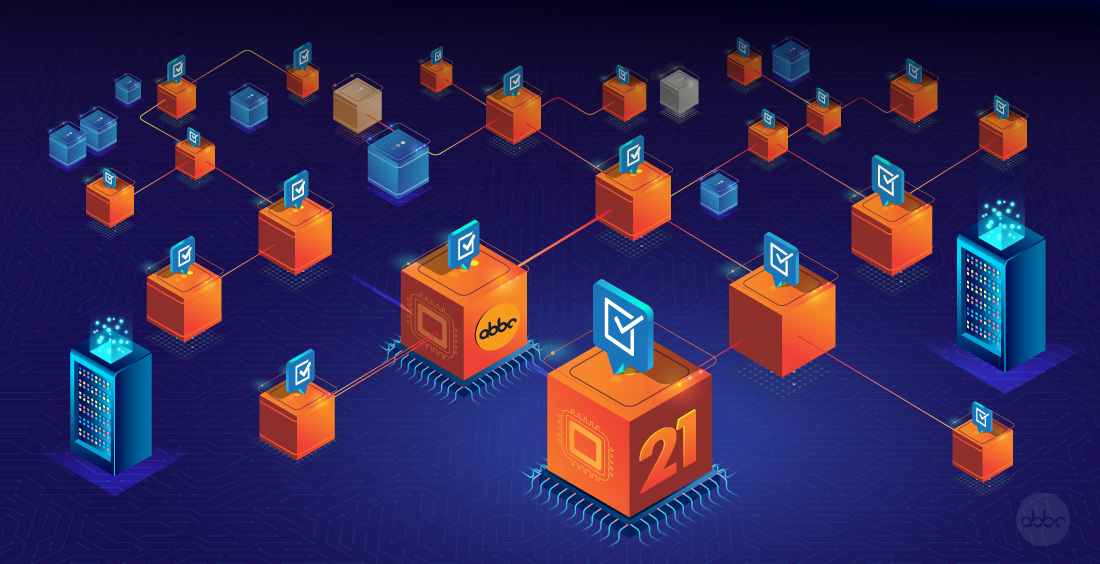In the spring of 2018, CTO of ABBC Stanley Park had initiated an analysis on any solutions to replace the cloned Bitcoin blockchain that is implemented in the ABBC blockchain. In June 2019, after some thorough research, the ABBC team of developers decided to make the progressive switch to the EOSIO blockchain; and by August of the same year, ABBC launched the testnet of its upgraded network which is a private Delegated Proof-of-Stake (DPoS) blockchain on EOS.

A significant benefit of switching to EOSIO is its unattached stand on token price relative to the available bandwidth to an application. As long as the application owner has a consistent number of tokens on a blockchain adopting the EOSIO software, then the application could run indefinitely within a fixed state. In this case, the users and developers are resistant to price volatility in the token market.
Simply put, a blockchain adopting EOS.IO software enables block producers to naturally increase bandwidth, computation, and storage available per token, independent from the token’s current value.
In the ABBC ecosystem, there are two key players:
- Block Producers (BPs).
- Users that vote for them.
BPs are users that provide computational resources, or essentially, run the network. Let’s take some time to know their roles in the ABBC blockchain.
Block Producer Selection
Being based on EOSIO, the ABBC blockchain has an unlimited number of BPs, of which 21 are referred to as unique BPs and are selected by means of automated voting every 126 seconds. In parallel to this, ABBC produces blocks every 0.5 seconds with only a single block producer being authorized to produce a block at any given point in time.
In ABBC’s liquidated democracy network, any user who stakes ABBC Coins can vote for a block producer. Each user can vote for up to 30 block-producing candidates using the entire weight of their stake. The top 21 BP candidates, by the total number of votes they’ve received, make up the core set of validators. The system also compensates additional BPs to serve as standby block producers.
If a block producer happens to miss a block and hasn’t produced any within the last 24 hours, they are removed from consideration until they disclose the blockchain of their intention to start producing again. Although, in EOS-like systems, block producers have an additional incentive to function accordingly. That incentive is social capital, which block producers are striving to earn during the voting for the core validators. Social capital is the network of relationships between the block producer and the other users. Positive social capital would see block producers receiving more votes to be core validators considering they have a better reputation with them.
Block Producer Criteria
In order to be eligible as an ABBC block producer, there is a 4-point set of selection criteria that must be adhered to:
- Technology: A block producer candidate must be able to run secure and reliable servers necessary to actually produce blocks, operate a full node, and offer API endpoints to users.
- Community: ABBC incentivizes block producers for their participation in block production. They need to fulfill the demands expected of them. ABBC only looks for block producers that have great technical expertise and that are able to lead and inspire the other community members.
- Ethics: Running a decentralized blockchain can be quite complicated from many standpoints, including relations between community members. ABBC expects its BPs to act civil and to understand that egos and disagreements have ruined market valuations of many interesting projects.
- Geographical and Institutional Decentralization: To avoid any political bias, or exposure altogether, on the ABBC blockchain, the ABBC team urges block producers from various regions, countries, and economic backgrounds to be a part of ABBC.
ABBC continues to promote decentralization and transparency through its new blockchain and implementation of a DPoS consensus mechanism. In line with this, we have also adopted decentralization principles not only in our technology but also in our own Decentralized Autonomous Organizations (DAO) management model.
More on that in the next leg of this ABBC Blockchain blog series!


